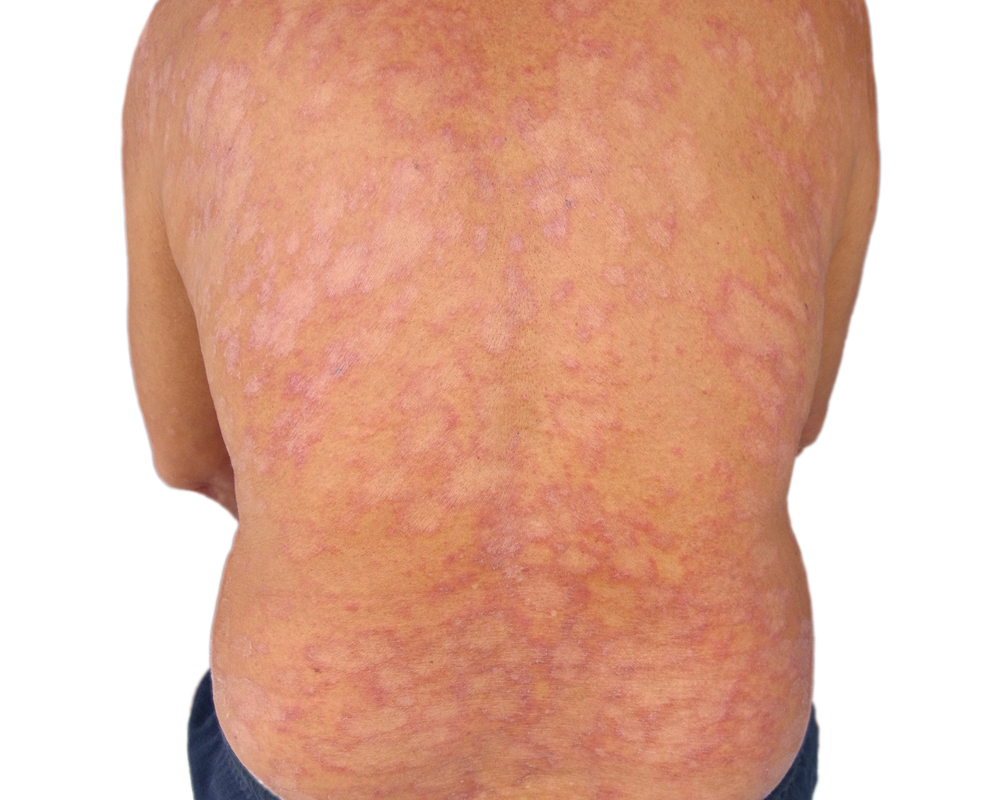How Fungal Infections Develop

What do skin problems like athlete's foot and yeast infections have in common? Both – and many more skin conditions – are caused by fungal infections. There are some 300 or so fungi in the world known to make people sick
Fungal infections of the skin occur when you come into contact with fungi that then invade skin tissue. These infections are most likely to develop in areas where skin is warm and often damp, such as in the armpits, genitals, under the breasts, or between the toes.
People with diabetes or who are obese are more likely to develop fungal infections, as are those with weakened immune systems or who are taking antibiotics.
Mild types of fungal infections can cause red, scaly rashes, while more severe forms can include extreme itchiness and pus-filled blisters. Fungal infections that enter the lungs or bloodstream can be fatal.
Types of Fungal Skin Infections
Common fungal infections include:
- Athlete's foot causes an itchy, scaly rash on the feet, especially on the soles of the feet or around the toes. Athlete’s foot is also called tinea pedis.
- Jock itch causes a rash on the skin near the genitals, inner thighs, and buttocks. It is usually due to trapped moisture in the area from wearing tight-fitting clothing. It affects men and women alike and is contagious. Jock itch is also called tinea cruris.
- Nail fungus can occur on any part of the nails of the toes or fingers. The most common fungi responsible for a nail fungal infection are dermatophytes.
- Ringworm, contrary to its name, is actually caused by a fungus that infects the top layer of the skin, causing a flat, scaly rash in the shape of irregular rings resembling a snake or worm (although no actual worms are involved in this type of infection). Ringworm is highly contagious and often develops after contact with an infected person or animal. Ringworm is also called tinea corporis when it occurs on the body and tinea capitis when it occurs on the scalp.
- Yeast infections can occur in folds of skin, in the mouth (oral thrush), and on the genitals (such as vaginal yeast infections). Yeast infections on the skin (cutaneous candidiasis) are caused by an overgrowth of the Candida fungus, which are normally present on the skin. These types of yeast infections are not contagious. Yeast infections are the usual culprit in most cases of diaper rash because the skin covered by diapers tends to remain warm and moist for long periods of time.
Diagnosis and Treatment
If you suspect you have a fungal infection, a dermatologist can evaluate your skin. This is especially important for severe infections, or those that recur. A culture or scraping of the skin can confirm a diagnosis.
Treatment for fungal skin infections include prescription-strength topical antifungal medications – typically creams or lotions, but sometimes also in the form of pills. Corticosteroids may be recommended to reduce inflammation and itching.
Depending on the location and severity of the fungal infection, it can take four weeks or longer to go away completely. Preventive measures to keep the skin clean and dry are often needed to avoid a future infection.
For more information about how to treat fungal infections like athlete's foot, nail fungus, ringworm, or yeast infections that affect the skin, call Atlantic Derm at (561) 802-SKIN (7546) to make your appointment with double board-certified dermatologist and family medicine physician Dr. Yvette Tivoli or use our online appointment request form.

